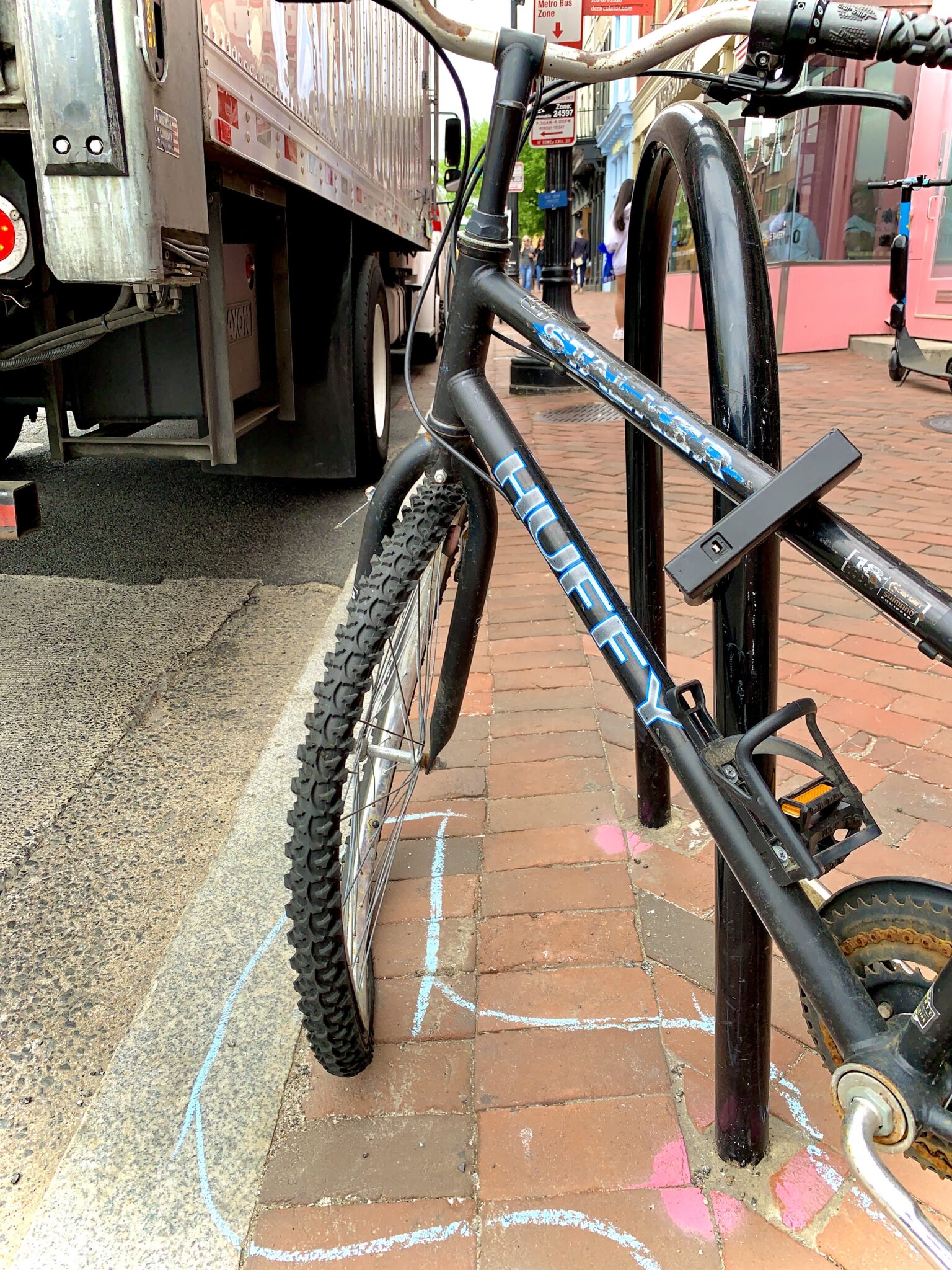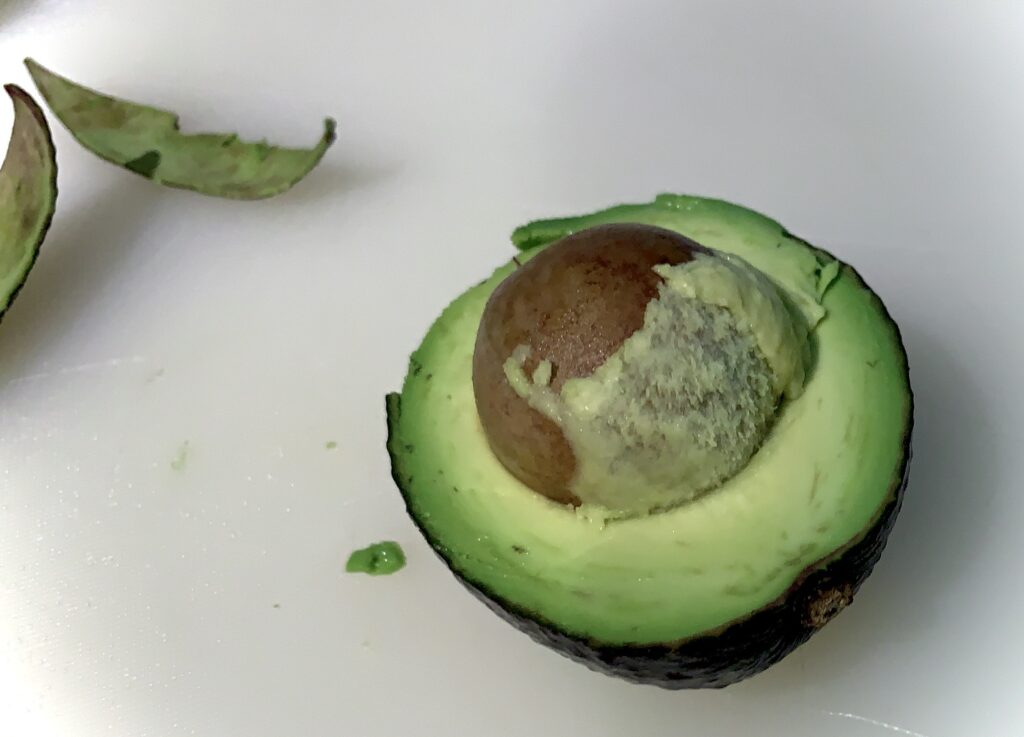The MORE Act of 2019, sponsored by Jerry Nader finally says that the federal government has been racist for the past 80 years with respect to attacking the use of marijuana by blacks. We’ll look at the money part of the pill, oops, I mean bill, this week!
Volume 1, Issue #145 – Published by LifeCraft Media. LLC, Monday, December 7, 2020 – Not2Late Edition
Double Take: If the federal government removes pot from the list of controlled substances, then why should it have taxing authority over the retail sale of cannabis produces – it’s going to get the income tax already. So we tax the sale current users to pay the government for their racism – how quaint.
Off the cuff – Scars: we remember scars, of all kinds, but in this case, we’re talking about scars from injuries, the kind you see, or someone else sees, and you recall how it happened. As the year closes out, we have new scars and stories, and the opportunity to tell them, when the time comes to relive the now of it: “thanks for the memories…”

MORE MORE 2019: the remainder of tonight’s edition is verbatim from the act, and the really funny part; any notes by editor are indicated, and here we go:
SEC. 5. CREATION OF OPPORTUNITY TRUST FUND AND IMPOSITION OF TAX ON CANNABIS PRODUCTS.
(a) Trust Fund.—
(1) ESTABLISHMENT.—Subchapter A of chapter 98 of the Internal Revenue Code of 1986 is amended by adding at the end the following new section:
“SEC. 9512. OPPORTUNITY TRUST FUND.
“(a) Creation Of Trust Fund.—There is established in the Treasury of the United States a trust fund to be known as the ‘Opportunity Trust Fund’ (referred to in this section as the ‘Trust Fund’), consisting of such amounts as may be appropriated or credited to such fund as provided in this section or section 9602(b).
“(b) Transfers To Trust Fund.—There are hereby appropriated to the Trust Fund amounts equivalent to the net revenues received in the Treasury from the tax imposed by section 5701(h).
“(c) Expenditures.—Amounts in the Trust Fund shall be available, without further appropriation, only as follows:
“(1) 50 percent to the Attorney General to carry out section 3052(a) of part OO of the Omnibus Crime Control and Safe Streets Act of 1968.
“(2) 10 percent to the Attorney General to carry out section 3052(b) of part OO of the Omnibus Crime Control and Safe Streets Act of 1968.
“(3) 20 percent to the Administrator of the Small Business Administration to carry out section 6(b)(1) of the Marijuana Opportunity Reinvestment and Expungement Act of 2019.
“(4) 20 percent to the Administrator of the Small Business Administration to carry out section 6(b)(2) of the Marijuana Opportunity Reinvestment and Expungement Act of 2019”..”.
(EDITOR NOTE – THAT IS 60 % to LAW (Attorney General), and 40% to the Small Business Administration – estimated annual tax first year full production ~ $2 Billion Dollars in new Federal Taxes per annum.)

(2) CLERICAL AMENDMENT.—The table of sections for subchapter A of chapter 98 of such Code is amended by adding at the end the following new item:
“Sec. 9512. Opportunity trust fund.”.
(b) Imposition Of Tax.—
(1) IN GENERAL.—Section 5701 of the Internal Revenue Code of 1986 is amended by redesignating subsection (h) as subsection (i) and by inserting after subsection (g) the following new subsection:
“(h) Cannabis Products.—On cannabis products, manufactured in or imported into the United States, there shall be imposed a tax equal to 5 percent of the price for which sold.”.
(2) CANNABIS PRODUCT DEFINED.—Section 5702 of such Code is amended by adding at the end the following new subsection:
“(q) Cannabis Product.—
“(1) IN GENERAL.—Except as provided in paragraph (2), the term ‘cannabis product’ means any cannabis or any article which contains cannabis or any derivative thereof.
“(2) EXCEPTION.—The term ‘cannabis product’ shall not include any medicine or drug that is a prescribed drug (as such term is defined in section 213(d)(3)).
“(3) CANNABIS.—The term ‘cannabis’—
“(A) means all parts of the plant Cannabis sativa L., whether growing or not; the seeds thereof; the resin extracted from any part of such plant; and every compound, manufacture, salt, derivative, mixture, or preparation of such plant, its seeds or resin; and
“(B) does not include—
“(i) hemp, as defined in section 297A of the Agricultural Marketing Act of 1946; or
“(ii) the mature stalks of such plant, fiber produced from such stalks, oil or cake made from the seeds of such plant, any other compound, manufacture, salt, derivative, mixture, or preparation of such mature stalks (except the resin extracted therefrom), fiber, oil, or cake, or the sterilized seed of such plant which is incapable of germination.”.
(3) CANNABIS PRODUCTS TREATED AS TOBACCO PRODUCTS.—Section 5702(c) of such Code is amended by striking “and roll-your-own tobacco” and inserting “roll-your-own tobacco, and cannabis products”.
(4) MANUFACTURER OF CANNABIS PRODUCTS TREATED AS MANUFACTURER OF TOBACCO PRODUCTS.—Section 5702 of such Code is amended by adding at the end the following new subsection:
“(r) Manufacturer Of Cannabis Products.—
“(1) IN GENERAL.—Any person who plants, cultivates, harvests, produces, manufactures, compounds, converts, processes, prepares, or packages any cannabis product shall be treated as a manufacturer of cannabis products (and as manufacturing such cannabis product).
“(2) EXCEPTION.—Paragraph (1) shall not apply with respect to any cannabis product which is for such person’s own personal consumption or use.
“(3) APPLICATION OF RULES RELATED TO MANUFACTURERS OF TOBACCO PRODUCTS.—Any reference to a manufacturer of tobacco products, or to manufacturing tobacco products, shall be treated as including a reference to a manufacturer of cannabis products, or to manufacturing cannabis products, respectively.”.
(5) APPLICATION OF CERTAIN RULES FOR DETERMINING PRICE.—Section 5702(l) of such Code is amended—
(A) by striking “section 5701(a)(2)” and inserting “subsections (a)(2) and (h) of section 5701”; and
(B) by inserting “And Cannabis Products” after “Cigars” in the heading thereof.
(6) CONFORMING AMENDMENT.—Section 5702(j) of such Code is amended by adding at the end the following new sentence: “In the case of a cannabis product, the previous sentence shall be applied by substituting ‘from a facility of a manufacturer required to file a bond under section 5711’ for ‘from the factory or from internal revenue bond under section 5704’.”.
(c) Effective Date.—
(1) IN GENERAL.—Except as otherwise provided in this subsection, the amendments made by this section shall apply to articles manufactured or imported in calendar quarters beginning more than one year after the date of the enactment of this Act.
(2) TRUST FUND.—The amendments made by subsection (a) shall take effect on the date of the enactment of this Act.
SEC. 6. OPPORTUNITY TRUST FUND PROGRAMS. (EDITRO NOTE: THE 60% of TAXES.)
(a) Cannabis Justice Office; Community Reinvestment Grant Program.—
(1) CANNABIS JUSTICE OFFICE.—Part A of title I of the Omnibus Crime Control and Safe Streets Act of 1968 (34 U.S.C. 10101 et seq.) is amended by inserting after section 109 the following:
“SEC. 110. CANNABIS JUSTICE OFFICE.
“(a) Establishment.—There is established within the Office of Justice Programs a Cannabis Justice Office. (EDITOR NOTE: – if Cannabis is not illegal, why does the Federal Government need a Cannabis Justice Office – BIG GOVERNMENT GETTIN BIGGER on YOUR TAX DOLLARS.)
“(b) Director.—The Cannabis Justice Office shall be headed by a Director who shall be appointed by the Assistant Attorney General for the Office of Justice Programs. The Director shall report to the Assistant Attorney General for the Office of Justice Programs. The Director shall award grants and may enter into compacts, cooperative agreements, and contracts on behalf of the Cannabis Justice Office. The Director may not engage in any employment other than that of serving as the Director, nor may the Director hold any office in, or act in any capacity for, any organization, agency, or institution with which the Office makes any contract or other arrangement.
“(c) Employees.—
“(1) IN GENERAL.—The Director shall employ as many full-time employees as are needed to carry out the duties and functions of the Cannabis Justice Office under subsection (d). Such employees shall be exclusively assigned to the Cannabis Justice Office.
“(2) INITIAL HIRES.—Not later than 6 months after the date of enactment of this section, the Director shall—
“(A) hire no less than one-third of the total number of employees of the Cannabis Justice Office; and
“(B) no more than one-half of the employees assigned to the Cannabis Justice Office by term appointment that may after 2 years be converted to career appointment.
“(3) LEGAL COUNSEL.—At least one employee hired for the Cannabis Justice Office shall serve as legal counsel to the Director and shall provide counsel to the Cannabis Justice Office.
“(d) Duties And Functions.—The Cannabis Justice Office is authorized to—
“(1) administer the Community Reinvestment Grant Program; and
“(2) perform such other functions as the Assistant Attorney General for the Office of Justice Programs may delegate, that are consistent with the statutory obligations of this section.”.
(2) COMMUNITY REINVESTMENT GRANT PROGRAM.—Title I of the Omnibus Crime Control and Safe Streets Act of 1968 (34 U.S.C. et seq.) is amended by adding at the end the following:“PART OO—COMMUNITY REINVESTMENT GRANT PROGRAM“SEC. 3052. AUTHORIZATION.“(a) In General.—The Director of the Cannabis Justice Office shall establish and carry out a grant program, known as the ‘Community Reinvestment Grant Program’, to provide eligible entities with funds to administer services for individuals most adversely impacted by the War on Drugs, including—“(1) job training;“(2) reentry services;“(3) legal aid for civil and criminal cases, including expungement of cannabis convictions;“(4) literacy programs;“(5) youth recreation or mentoring programs;“(6) health education programs; and“(7) services to address any collateral consequences that individuals or communities face as a result of the War on Drugs.“(b) Substance Use Treatment Services.—The Community Reinvestment Grant Program established in subsection (a) shall provide eligible entities with funds to administer substance use treatment services for individuals most adversely impacted by the War on Drugs.“SEC. 3053. FUNDING FROM OPPORTUNITY TRUST FUND.“The Director shall carry out the program under this part using funds made available under section 9512(c)(1) and (2) of the Internal Revenue Code.“SEC. 3054. DEFINITIONS.“In this part:“(1) The term ‘cannabis conviction’ means a conviction, or adjudication of juvenile delinquency, for a cannabis offense (as such term is defined in section 13 of the Marijuana Opportunity Reinvestment and Expungement Act of 2019).“(2) The term ‘substance use treatment’ means an evidence-based, professionally directed, deliberate, and planned regimen including evaluation, observation, medical monitoring, harm reduction, and rehabilitative services and interventions such as pharmacotherapy, mental health services, and individual and group counseling, on an inpatient or outpatient basis, to help patients with substance use disorder reach remission and maintain recovery.“(3) The term ‘eligible entity’ means a nonprofit organization, as defined in section 501(c)(3) of the Internal Revenue Code, that is representative of a community or a significant segment of a community with experience in providing relevant services to individuals most adversely impacted by the War on Drugs in that community.“(4) The term ‘individuals most adversely impacted by the War on Drugs’ has the meaning given that term in section 6 of the Marijuana Opportunity Reinvestment and Expungement Act of 2019”..”.
(b) Cannabis Opportunity Program; Equitable Licensing Grant Program.—
(1) CANNABIS OPPORTUNITY PROGRAM. (EDITOR NOTE: THE 40% of TAXES)—The Administrator of the Small Business Administration shall establish and carry out a program, to be known as the “Cannabis Opportunity Program” to provide any eligible State or locality funds to make loans under section 7(m) of the Small Business Act (15 U.S.C. 363(m)) to assist small business concerns owned and controlled by socially and economically disadvantaged individuals, as defined in section 8(d)(3)(C) of the Small Business Act (15 U.S.C. 637(d)(3)(C)) that operate in the cannabis industry.
(2) EQUITABLE LICENSING GRANT PROGRAM.—The Administrator of the Small Business Administration shall establish and carry out a grant program, to be known as the “Equitable Licensing Grant Program”, to provide any eligible State of locality funds to develop and implement equitable cannabis licensing programs that minimize barriers to cannabis licensing and employment for individuals most adversely impacted by the War on Drugs, provided that each grantee includes in its cannabis licensing program at least four of the following:
(A) A waiver of cannabis license application fees for individuals who have had an income below 250 percent of the Federal Poverty Level for at least 5 of the past 10 years who are first-time applicants.
(B) A prohibition on the denial of a cannabis license based on a conviction for a cannabis offense that took place prior to State legalization of cannabis or the date of enactment of this Act, as appropriate.
(C) A prohibition on criminal conviction restrictions for licensing except with respect to a conviction related to owning and operating a business.
(D) A prohibition on cannabis license holders engaging in suspicionless cannabis drug testing of their prospective or current employees, except with respect to drug testing for safety-sensitive positions, as defined under the Omnibus Transportation Testing Act of 1991.
(E) The establishment of a cannabis licensing board that is reflective of the racial, ethnic, economic, and gender composition of the State or locality, to serve as an oversight body of the equitable licensing program.
(3) DEFINITIONS.—In this subsection:
(A) The term “individual most adversely impacted by the War on Drugs” means an individual—
(i) who has had an income below 250 percent of the Federal Poverty Level for at least 5 of the past 10 years; and
(ii) has been arrested for or convicted of the sale, possession, use, manufacture, or cultivation of cannabis or a controlled substance (except for a conviction involving distribution to a minor), or whose parent, sibling, spouse, or child has been arrested for or convicted of such an offense.
(B) The term “eligible State or locality” means a State or locality that has taken steps to—
(i) create an automatic process, at no cost to the individual, for the expungement, destruction, or sealing of criminal records for cannabis offenses; and
(ii) eliminate violations or other penalties for persons under parole, probation, pre-trial, or other State or local criminal supervision for a cannabis offense.
(C) The term “State” means each of the several States, the District of Columbia, Puerto Rico, any territory or possession of the United States, and any Indian Tribe (as defined in section 201 of Public Law 90–294 (25 U.S.C. 1301) (commonly known as the “Indian Civil Rights Act of 1968”)).

That’s the part of the act that makes so little sense – they could have stopped at the end of section 3, and the federal government would not need more taxes and would not need to grow – the states are doing fine without the FEDS!
MUSIC:
“Dance of the Planets” from Beside Solanum by Razbaque Dirge. Used under cc 4.0 share by license.
Comments
Leave a Reply
You must be logged in to post a comment.
Be the first to comment.